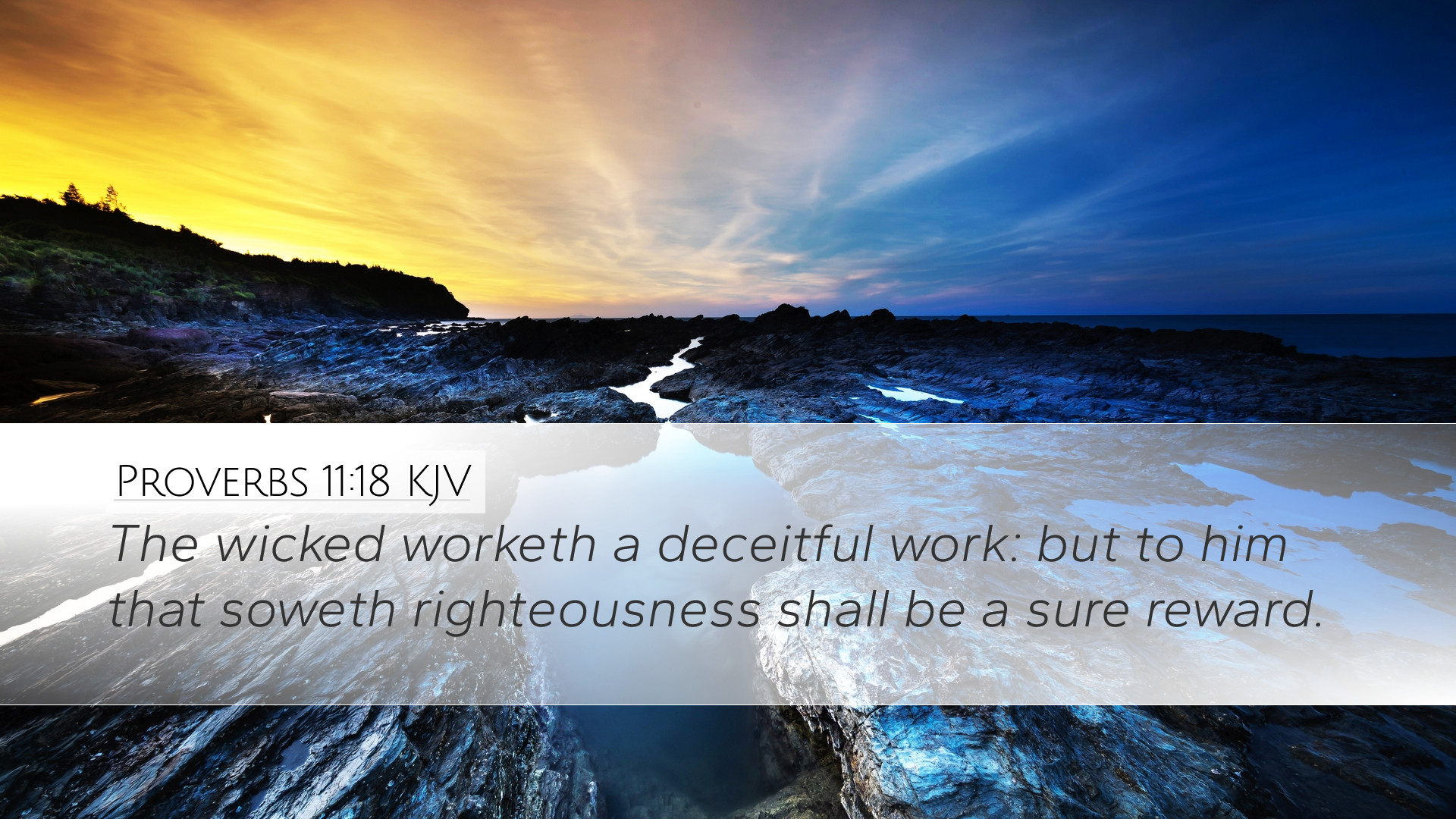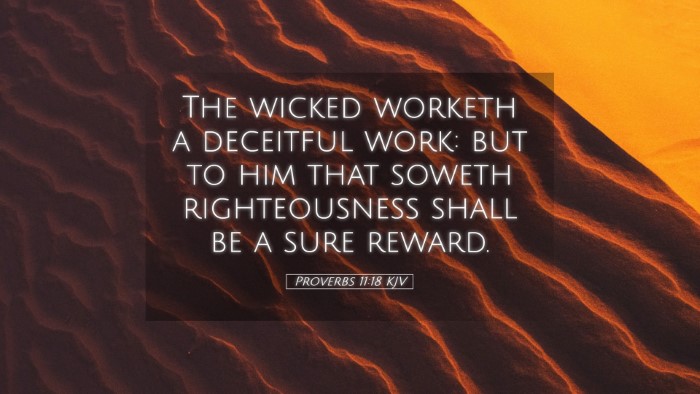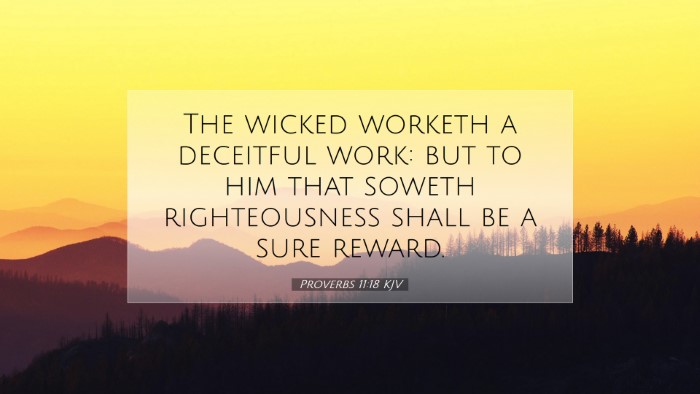Proverbs 11:18 Commentary
Verse Reference: Proverbs 11:18 - "The wicked worketh a deceitful work: but to him that soweth righteousness shall be a sure reward."
Contextual Overview
The book of Proverbs is a collection of wise sayings attributed primarily to King Solomon. It serves as a guide for living a life that honors God and reflects His character. Proverbs 11 focuses on the contrasts between the righteous and the wicked, emphasizing the outcomes of their respective paths. This specific verse highlights the juxtaposition between the deceitful actions of the wicked and the certain rewards for those who pursue righteousness.
Exegesis
In examining Proverbs 11:18, we see a clear distinction drawn between two types of individuals: the wicked and the righteous. The wicked are described as engaging in "deceitful work," suggesting that their actions are not only morally wrong but also deceptive in nature.
On the contrary, those who "soweth righteousness" are represented as engaging in actions that are righteous and honorable, which is coupled with the promise of a "sure reward." This reflects a central tenet of the biblical worldview—the principle of sowing and reaping (Galatians 6:7).
Insights from Public Domain Commentaries
-
Matthew Henry:
Henry notes that the term "deceitful work" implies that the wicked are engaged in activities that appear profitable but ultimately lead to destruction. In contrast, righteousness may often be accompanied by suffering in the short term, yet the promise of a "sure reward" signifies ultimate vindication and success in God’s economy. He emphasizes that the rewards for righteousness are not always immediate but are assured in God’s timing.
-
Albert Barnes:
Barnes expounds on the term "sure reward," asserting that while the wicked may seem to prosper through their deceitful ways, their end is destruction. He encourages the reader to understand that true success and reward come from living a life in accordance with God’s will. Barnes highlights that the righteous, though they may face trials, are promised a compensatory reward that far outweighs the temporary gains of the wicked.
-
Adam Clarke:
Clarke points out that the "deceitful work" of the wicked may refer to any form of dishonesty—whether in commerce, relationships, or moral standing. He encourages an understanding of righteousness not simply as moral rectitude but as an overarching lifestyle rooted in God’s commandments. Clarke also correlates the "sure reward" with eternal life, indicating that the ultimate reward for the righteous is not only material prosperity but spiritual fulfillment and eternal life in communion with God.
Theological Implications
The verse presents a clear theological principle regarding divine justice. God's governance of the universe ensures that while the wicked may thrive temporarily, their end is calamity, while the righteous, regardless of their present circumstances, will experience God’s faithfulness.
This principle invites believers to trust in God's timing and wisdom. In a world where the wicked often seem to prosper, this verse serves as a reminder that God’s judgment is certain and that righteousness, even if it appears to bear little fruit in the immediate context, is ultimately validated by God.
Application for Believers
For pastors, students, and scholars, this verse serves to reinforce the importance of a life lived in obedience to God's commands. It challenges believers to evaluate their actions and intents, ensuring that they align with the pursuit of righteousness rather than the allure of deceitful gains.
Moreover, it encourages a steadfast faith in God’s promises, instilling hope in the face of adversity. As members of the faith community, individuals are called to be exemplars of righteousness, thus impacting their surroundings positively and witnessing to the transformative power of living according to God's principles.
Conclusion
Proverbs 11:18 offers timeless wisdom that transcends the cultural and temporal bounds of its origin. By contrasting the outcomes of the wicked and the righteous, it admonishes believers to pursue a life characterized by integrity and faithfulness. The promise of reward serves as an encouragement to all who find themselves discouraged by the apparent triumph of evil. As we delve deeper into the meanings of this verse, we are reminded of the profound influence of our choices on our lives and the lives of those around us.


